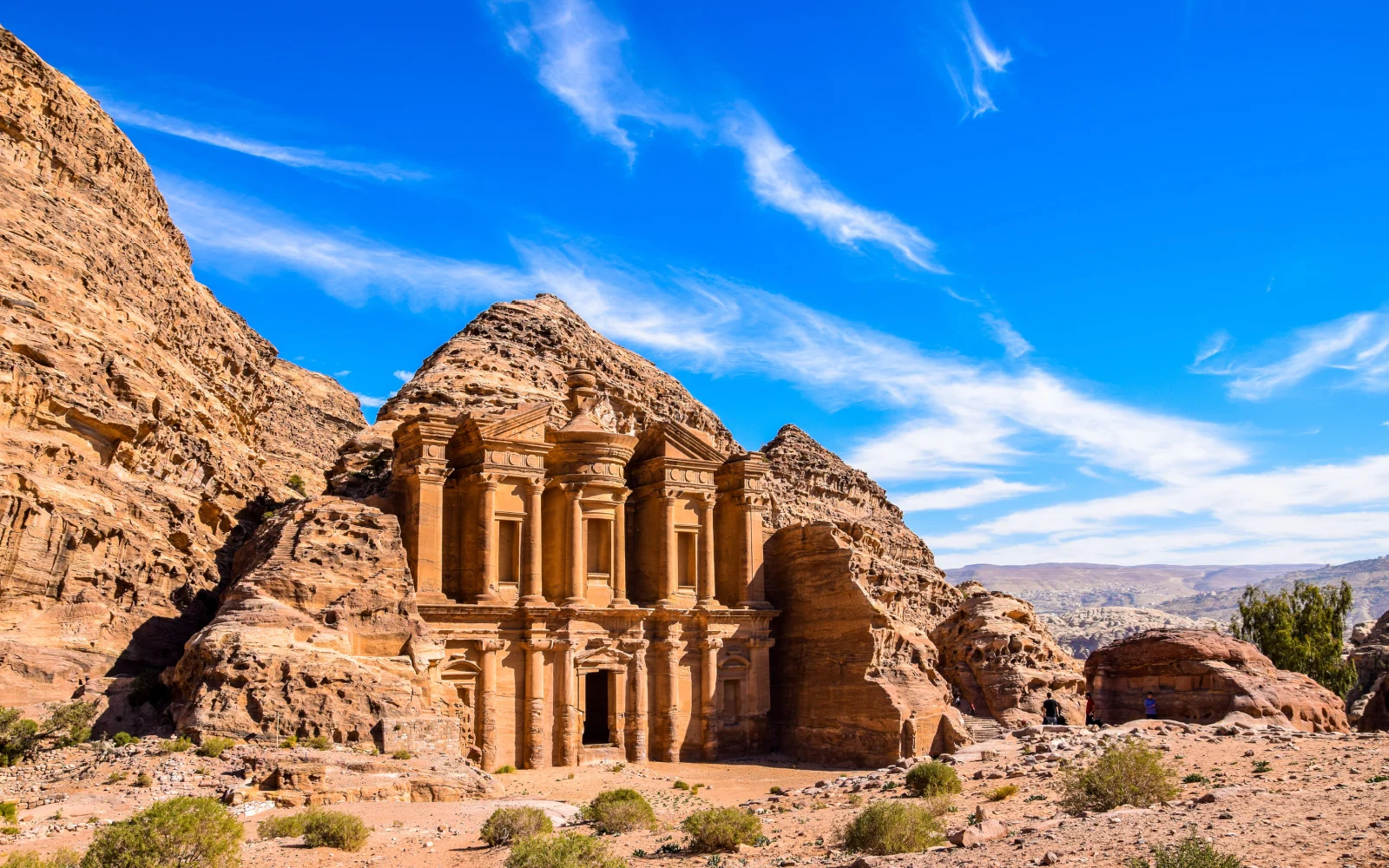The rock city of Petra in Jordan is one of the new seven wonders of the world and it tops many bucket-list travel destinations. The city, also nicknamed the Rose City, features majestic stone buildings carved directly into the dramatic rocks.
Visitors to Petra can enjoy the wonderful ancient buildings, still well preserved from the days of the ancient Nabateans and featuring architecture and colors like nowhere else.
The natural beauty of the site is also spectacular, with colorful cliffs that come alive at sunrise and sunset. Petra is one of Jordan’s most popular tourist destinations, and if you’re visiting the country, you’ll probably want to visit.
The pictures certainly look spectacular, but what is the reality like on the ground? We’ll show you whether or not Petra is safe to visit below and offer our expert tips for staying safe when you go.
Is Petra Safe to Visit?
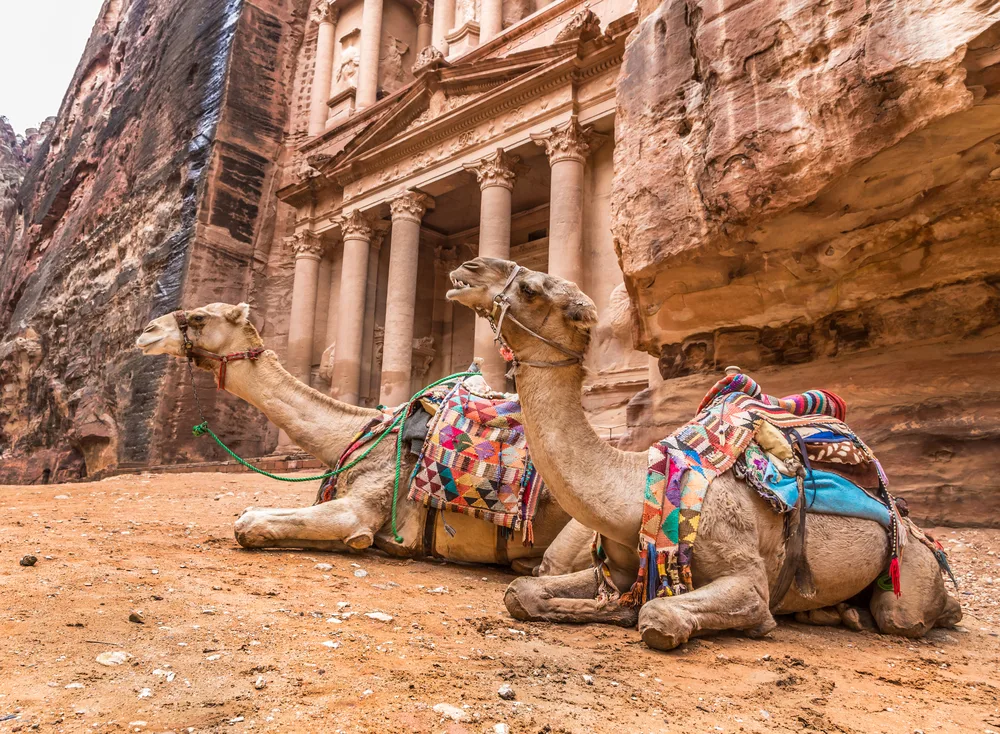
DimaSid/Shutterstock
Yes, Petra overall is a very safe place to visit. The entire site is part of the Petra National Park, run by the Jordanian government, so they take extra safety precautions to ensure that visitors are well taken care of.
However, you will encounter petty crime, mostly in the form of petty theft, scams, and sexual harassment, as the many tourists congregating in Petra are an irresistible target for local criminals.
Petra is safe to visit because the country of Jordan is overall a safe tourist destination. You can tell that it is safe to visit from the relaxed travel advisories from foreign governments.
Governments such as Canada tell their citizens to exercise increased caution in Jordan due to the threat of terrorism and other forms of unrest; however, these are all events that can happen anywhere.
It also has more to do with Jordan’s neighbors than with the country itself. Jordan borders both Syria and Iraq, both countries with years of instability and war, and hosts a large refugee population from those areas as well as Palestine.
The country has done its best to maintain stability while in a challenging neighborhood, but outbreaks sometimes happen. The good news is that any instability in the country of Jordan rarely affects Petra itself.
When you look at regional advisories telling you where not to go in Jordan, such as the advisory that the United States State Department publishes on its website, Petra is nowhere on the list.
The ancient city is in a fairly remote location, meaning that it is well insulated from problems that other parts of Jordan may suffer, such as demonstrations, civil unrest, and even terrorism.
The remote nature of Petra does not fully protect it from crimes, especially since the large crowds of mostly well-to-do tourists are an attractive target.
Crimes in Petra are of a petty nature, including:
- Pickpocketing
- Scams
- Sexual harassment
Besides crime, you should be on the lookout for the harsh nature in Petra. The environment managed to carve out the spectacular caverns and gorges that make up the site, but it is no joke.
Petra’s weather is very hot and dry, especially in the summer, so make sure that you dress appropriately.
The hikes go through rugged terrain, so stay away from the edge and wear hiking shoes (even though you may see photos on Instagram of people in heels and dresses in the site, they hike in wearing sensible footwear and usually change).
Petra is vulnerable to natural disasters, especially earthquakes and flash floods. In December 2022, the government had to evacuate tourists from Petra due to flash flooding, and several people died in 2018.
The area is prone to flooding if there are heavy rains and due to the arid landscape, you won’t get much notice when floods are preparing. Be sure to check the weather forecast ahead of time and don’t visit Petra if they predict heavy rains.
Crime in Petra
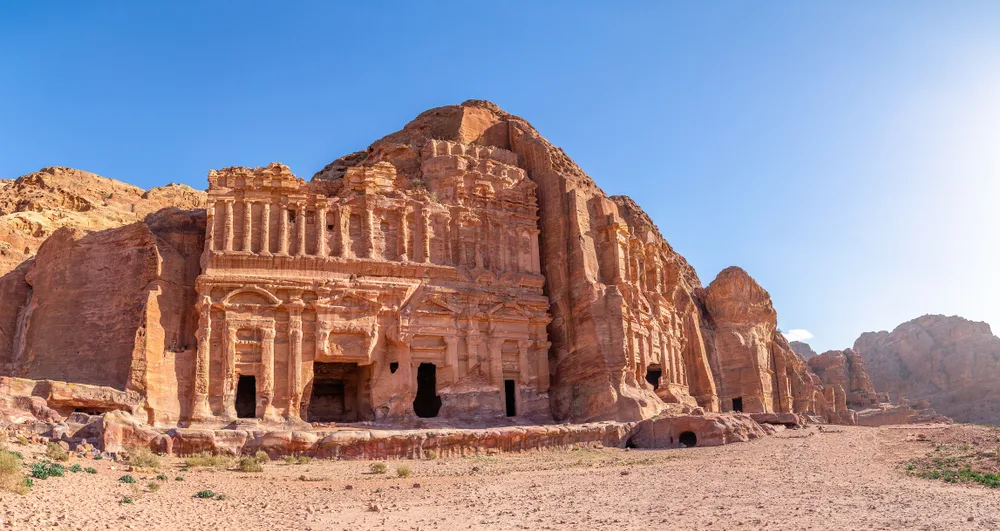
Anton Buymov/Shutterstock
The primary concern most visitors have when going anywhere, including Petra, is crime. Crime is usually the biggest threat to tourist safety and well-being.
People may think of Jordan as a dangerous place due to its location in the Middle East, but that is far from the truth. The country of Jordan overall has a very low crime rate. In 2020, the homicide rate was 1.20 incidents per 100,000 people, which is a very low number.
Violent crime is practically unheard of in Petra, especially since this is a sparsely populated national park located close to a smaller village, not any big city with potentially dangerous neighborhoods or violent criminals.
Although Petra almost never experiences violent crime, petty crime is present throughout the site. That makes sense since so many crowds of tourists are an attractive target for scammers throughout the local area.
It is difficult to get accurate crime statistics for Petra, maybe because incidents are statistically insignificant, but anecdotal evidence advises tourists to be careful.
When you enter the site, you will see crowds of people hawking goods, offering tourists rides on their animals, or begging. These hawkers can get aggressive and some have less than pure intentions.
Even though the actual crime statistics for Petra are fairly low, it still pays to take basic precautions when you are in the area. You don’t want to let yourself get too comfortable then have to go home and feel embarrassed.
Scams
Petty crimes are prevalent throughout Petra. Thefts such as pickpocketing happen sometimes, but so rarely that there are no statistics about it. Just in case, keep an eye on your valuables when you are in the park.
Take a zipped bag or put everything in pockets that are easily accessible. Be careful of common pickpocket techniques, such as children telling you that you dropped something.
Often, thieves will try to distract you so they can get at your valuables. Even if someone is not attempting to steal from you, you don’t want to fall for whatever their distraction aim is. Pickpocketing is uncommon in Petra, but scams are present everywhere.
They start right at the entrance. The UK government warns on its official travel advisory site to ask the tourist office staff about additional charges as people posing as ticket takers sometimes tell you that you have to pay an extra fee.
Also avoid people trying to resell unauthorized tickets or offering to sneak you in for a lower price. The Jordanian authorities do not take kindly to people trying to avoid their official entrance fee.
Animal rides are another common scam. Once you enter the park, you will be met with handlers telling you to take a ride on their animal through the Siq, or canyon through which you enter the site, so you can reach the Treasury faster.
They will claim that the price of a horse or donkey ride is included in your ticket. This price is actually not included in your ticket and once you get off the animal (often far from the Treasury) you’ll be accosted by an aggressive handler looking for a mandatory “tip.”
The animals are usually not treated well, so you don’t want to participate in this mistreatment. Finally, be careful of anyone offering you anything in Petra.
Although Jordanian hospitality is famous all over the world, it always comes with strings attached in Petra. This includes a guided tour, visit to remote areas of the park, or an offer of tea in an authentic Bedouin tent.
Usually, the person will aggressively demand a charge at the end, and especially if you allowed yourself to be led away from the main part of the park, you won’t have an easy way to get out.
Sexual Harassment
Unfortunately, sexual harassment is very common in the park of Petra. Hawkers and local scammers target women far more frequently than they target men because they see them as easier targets.
Be prepared before you go in to meet everything with a firm no and do your best to ignore the constant calls. Many scammers target women in particular for love scams, a form of sexual harassment.
Love scammers are so frequent that there is even an Instagram dedicated to calling out the most frequent offenders, created by anonymous fed-up locals upset that their reputation is affected by these men.
The way these scammers work is they follow foreign women through the park, offering to take them back to their tent for an authentic Bedouin dinner or tea.
They often play into the image created by the popular book Married to a Bedouin, written by a nurse from New Zealand who married a Bedouin man from Petra. However, the intentions of most of these scammers are not so pure.
They strike up a relationship with foreign women with the goal of extorting them for money later. There have even been cases of men promising women free tea or a meal in their tent, only to sexually assault them. Never follow anyone to a remote location in the park.
Avoiding Bad Areas
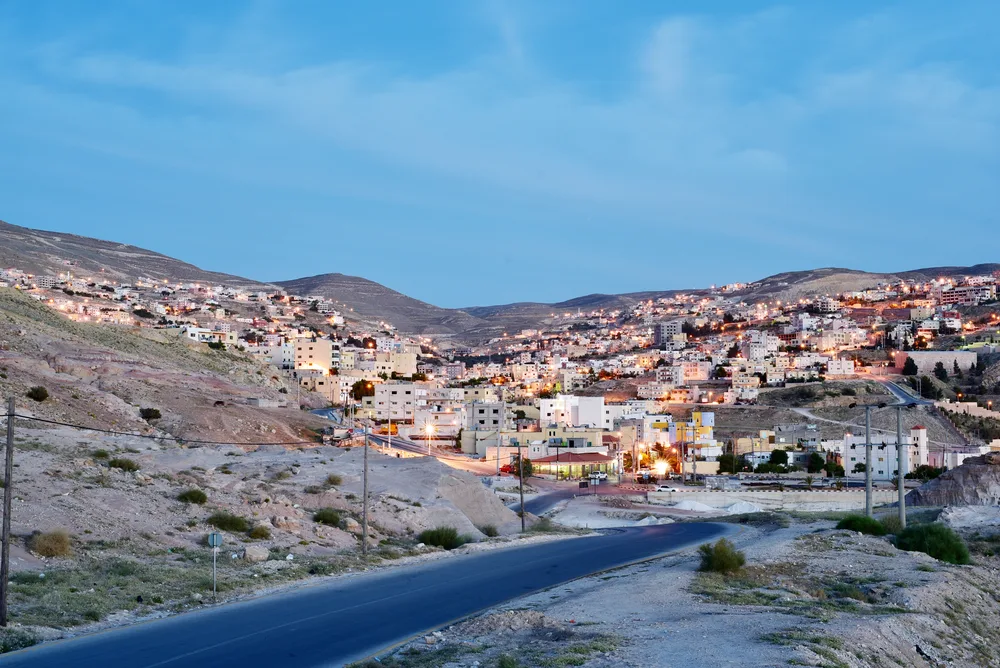
akturer/Shutterstock
Since Petra is in a national park, there are no bad areas per se. There may be some trails that are closed to visitors, but these are usually marked with a sign. You can always ask at the entrance if there are any areas you should avoid within the park.
Outside of the site, many tourists stay in the nearby village of Wadi Musa so they can spend a complete day in Petra. Some tourists report feeling less safe in Wadi Musa, so take some precautions if you are walking around, but you shouldn’t encounter any violent crime.
Things to Consider
Here are some other safety tips that can help you have a great time in Petra:
- Be careful as you walk through the site. There are no cars, but locals ride horses, donkeys, camels, and carts throughout the area without any concern for the safety of pedestrians. There have been situations of people getting hurt and run over! If you hear hooves on the path, get out of the way first, then ask questions later.
- The Jordanian government is very, very strict about opening hours in Petra, so don’t try to sneak in outside of opening hours or stay after closing time to camp. There have been situations of people getting locked in overnight and then getting punished with fines or jail time the next day.
- Pay attention to weather reports because the road to Petra is sometimes closed due to flash flooding.
- Toilets in Petra are widely available and free, although some toilet attendants will ask for a tip.
Frequently Asked Questions
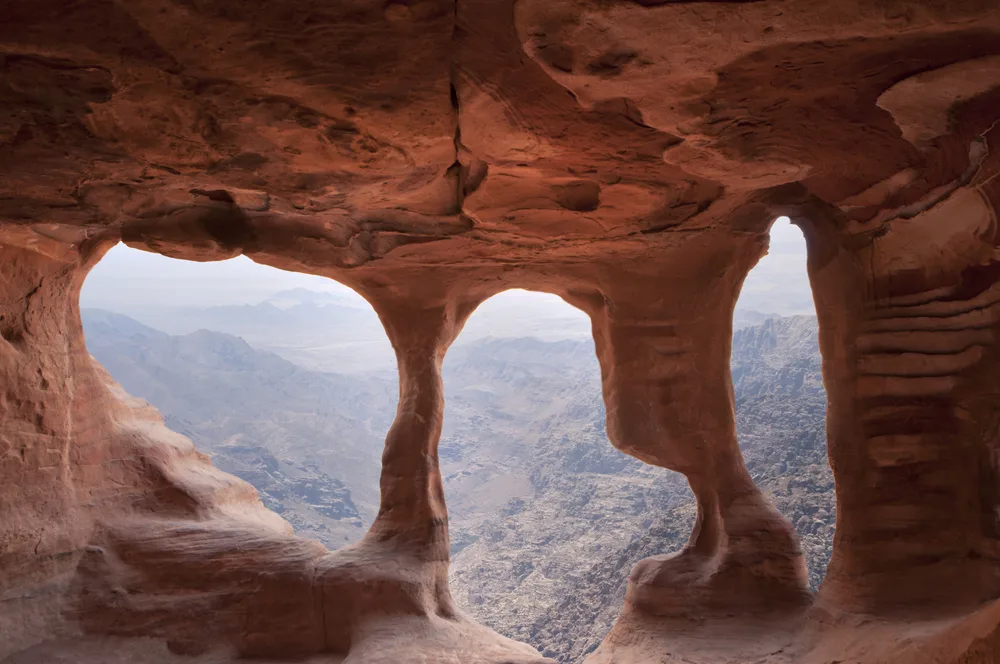
Jerome Stubbs/Shutterstock
Here are some other questions that previous visitors to Petra wanted to ask:
Is Jordan safe for tourists?
Yes, Jordan is safe for tourists. It is one of the safest countries in the Middle East. The Jordanian government even has a designated tourist police for places such as Petra whose only job is to keep tourists safe.
Is it safe to travel to Petra, Jordan right now?
Yes, it is safe to travel to Petra, Jordan right now. There are no major security threats, and the crime situation is the same as always, mostly petty scammers.
However, you do want to check the weather reports before you go. Petra suffered flash floods at the end of 2022 and early 2023, and you don’t want to get caught in heavy rains while you are there.
Is it safe to go to Petra at night?
No, the park has strict closing hours at sunset. It is illegal to go to Petra at night and the Jordanian authorities will penalize you if you get caught.
Can you wear shorts in Petra?
Jordan’s culture is a bit conservative, so shorts for both men and women are not accepted. Plus, you don’t want to wear shorts while hiking in Petra because you expose your legs to dangers such as sun, dust, and potential animal bites.
How much time do you need in Petra?
You need at least one full day to explore Petra. Many tourists stay in Wadi Musa and opt for two days there.
So, Is Petra Safe to Visit?
Yes, Petra is mostly safe to visit. You will have to stay on your alert against scammers and harassment, but violent crime is very rare. So, with so much to see and do, and a very safe environment, what are you waiting for — book your trip to Petra today!



